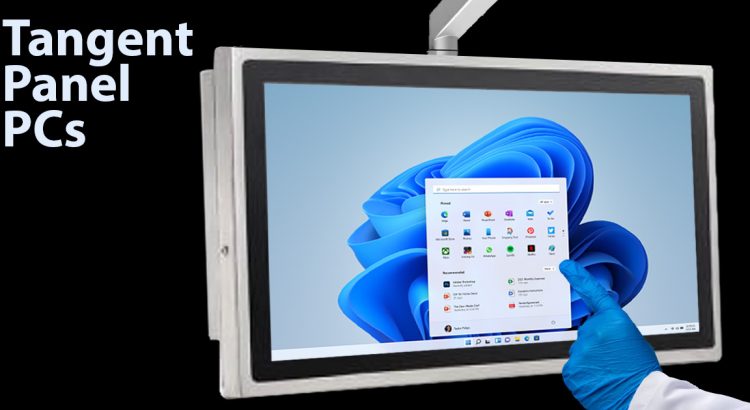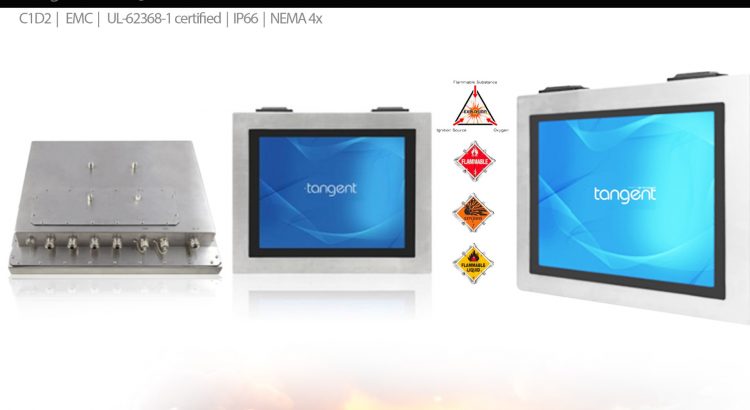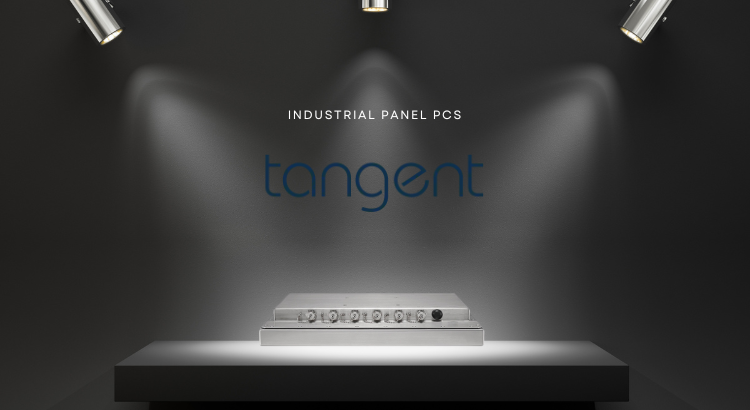Tangent brings you cutting-edge industrial panel PC solutions designed for the most demanding Industrial IoT and edge computing environments. Our industrial computers are engineered to enhance reliability and prevent failures, ensuring peace of mind for your critical operations. With a range of space-efficient form factors, our industrial panel PCs are ideal for installations with limited […]
Category: Industrial Pc

Industrial Computers Tailor-Made for Oil and Gas Sectors
Tangent’s explosion-proof computers are robust and purpose-built for the oil and gas industry. In environments characterized by the presence of flammable or explosive vapors or gases, such as those found in the oil and gas industry, prioritizing safety and reliability is of utmost importance. Tangent’s commitment of manufacturing best-practice purpose-built computers has heard the demands […]

What is the Most Reliable Industrial PC?
An industrial computer, often referred to as an industrial PC, is purpose-built to handle complex industrial tasks. Crafted from industrial-grade components, enclosed in ruggedized casings, and rigorously tested for reliability, these industrial PCs excel in environments where standard desktop computers would falter. Key features of industrial PCs include: Ventless and Fanless Design: Industrial PCs are […]

Tangent’s Panel PCs
In today’s rapidly advancing world of technology, businesses across industries are constantly seeking innovative solutions to enhance productivity and streamline operations. As the demand for seamless human-machine interaction continues to rise, Panel PCs have emerged as an invaluable asset for various industrial applications. In this blog post, we will delve into the world of Panel […]

New Product Announcement: Industrial Explosion Proof VITA S C1D2 15″ and 22″ Computers
Tangent is thrilled to announce the release of its latest products, the Explosion Proof Panel PC, Vita S C1D1 15” and 22” series. Designed to meet the stringent requirements of hazardous environments, the Vita S Explosion Proof series computers have undergone rigorous testing to ensure safety, top performance, and offers the best solution for environments […]
How Industrial PCs are Revolutionizing Industrial Automation
Industrial automation has come a long way in recent years, and the rise of industrial PCs has played a significant role in this revolution. Industrial PCs are used to control and monitor a wide range of manufacturing processes, from assembly lines to robotic systems. In this blog, we will discuss how industrial PCs are revolutionizing industrial automation. […]
Clean Rooms and Industrial PCs: A Perfect Pairing
Clean rooms are critical environments that require specialized equipment to maintain a contamination-free environment. Industrial PCs are a perfect pairing for clean room applications, providing reliable and efficient solutions for controlling processes and data management. The strict cleanliness requirements of clean rooms make it necessary to use specialized equipment that can operate without causing contamination. […]
Industrial PCs Necessary for Clean Rooms
Clean rooms are critical environments used in industries like pharmaceuticals, biotech, and semiconductor manufacturing to maintain a controlled environment free of airborne contaminants. The stringent requirements for clean room environments make it necessary to use specialized equipment that can operate without causing contamination. Industrial PCs are a necessary component in clean room applications, offering reliable […]
Industrial PCs Versus Military PCs
Industrial PCs and military PCs are both specialized types of computers that are designed to operate in harsh environments and demanding conditions. But what exactly sets these two types of PCs apart? How do they differ in terms of performance, durability, and functionality? Industrial PCs are designed to operate in industrial environments, such as factories, […]
Industrial PCs: How They are Used?
Industrial PCs have a form factor between a nettop and a server rack and are used to produce products and services. Industrial PCs are higher dependable and precise standards and are generally more expensive than consumer electronics. In addition, IPCs often use complex instruction sets, such as x86, where reduced instruction sets such as ARM would […]
